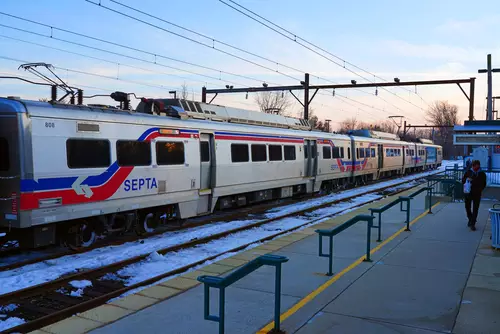SEPTA Secures $317M in Federal Funding to Replace Rail Cars

SEPTA, the Southeastern Pennsylvania Transportation Authority, is set to receive a whopping $317.1 million in federal funding to replace 200 of its rail cars. This much-needed investment is part of the Infrastructure Investment and Jobs Act (IIJA) and will greatly benefit commuters on SEPTA’s Market-Frankford Line, the agency’s busiest commuter rail line.
The announcement was made by Philadelphia Mayor Cherelle L. Parker, along with U.S. Sens. Bob Casey and John Fetterman, and U.S. Reps. Brendan Boyle, Dwight Evans, and Mary Gay Scanlon, all from Pennsylvania. They expressed their support for the bipartisan IIJA, which aims to improve critical infrastructure across the country.
Rep. Boyle emphasized the challenges faced by SEPTA in recent years and highlighted the visible improvements that this funding will bring. He stated, “This funding will allow SEPTA to enhance the quality of service for thousands of commuters along the Market-Frankford line—many of whom reside in my congressional district.”
The allocated funds are part of the U.S. Department of Transportation’s Rail Vehicle Replacement Program, established through the IIJA. This program has already provided more than a billion dollars for SEPTA, helping the agency modernize its fleet and enhance its services.
Sen. Casey stressed the significance of this investment, explaining how thousands of Pennsylvanians rely on the Market-Frankford Line for their daily commute. He said, “With this vital funding, SEPTA can modernize its inventory with American-made rail cars while increasing safety and reliability for all of Southeastern Pennsylvania.”
This substantial federal funding highlights the ongoing commitment to improving transportation infrastructure and providing efficient, safe, and reliable services to the residents of Pennsylvania. SEPTA’s modernized rail cars will undoubtedly enhance the commuting experience for thousands of passengers.
